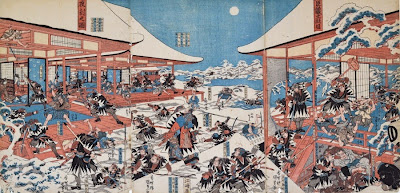My mantra for each of the cycles I spent on the job market before landing my job (and I earnestly hope will be of use to you, dear reader) was: "Expect the unexpected." I expected that conference (traditionally, "first-round") interviews would be held with three-to-four professors from the hiring department. The first conference interview I sat for was arranged after I arrived at the conference. The interview took place in the conference's lovely (read: "dreaded") be-cubicled job center, where I could hear the interviews taking place next door. Also, rather than the three members that comprised the department's full faculty complement, there were eight people squeezed into the cubicle; I met five (lovely AND professionally-behaved) of the undergraduates I would be teaching if I was hired. I did not expect to be interviewed by prospective undergraduates and faculty colleagues at a conference. I have not yet experienced any conference interviews where I was sitting on the hotel room bed next to a professor's unmentionables and other paraphernalia strewn hither-and-yon. I have however been sandwiched into a corner while eight (or was it nine?) professors grilled me, also unexpected. Telephone and Skype interviews are likely to go awry due to faulty connections, weather, jet-lag, etc. According to academic job wikis, many departments are now pragmatically - for budgetary and competitive reasons - seeking to do their first-round and on-campus interviews BEFORE the big January conference, traditionally the site for first-round interviews. By doing this, they can extend an offer to their first- (or even second-)choice candidate before said candidate can even attend the big conference. It rather reminds me of "Early Decision" or "Early Action" options when I was applying to college, which can work nicely for the hiring department, but certainly limits the candidate's options. Accept these likely issues, "keep calm and carry on."
In this brave new world. Since you're taking out loans to survive the sixth-, seventh-, or eighth-year of grad school you weren't planning on five years ago, you might consider hiring a consultant to help you land that elusive tenure-track job. Speaking of which, there is at least one former-tenured-professor-turned-academic-consultant out there that you might look up (Karen L. Kelsky, whose "shingle" I've shamelessly borrowed above).
Parting Shots
Now that I am part of a department that - thankfully - is looking to expand its tenure-line faculty ranks rather than barely treading water or actively contracting in the face of declining numbers of undergraduate majors, I want to (having seen some applications of late) leave you with a few tips, some food-for-thought:
1) Most obviously, if you are a grad student at a top-ranked university, most of the jobs you are applying to will be at teaching institutions. Your advisor may only have taught (or "taught") at top-flight R1 universities, and may have little wisdom to impart to you about how to apply to (or life at) teaching-focused colleges. They may even actively discourage you from applying to such schools in the first place. In my experience, I have had to prove to sometimes rather skeptical prospective colleagues that I can survive and/or thrive in a teaching-only environment. So, do what you already know how to do so superlatively: do your research on these schools, and demonstrate to the search committee (whether on the telephone, over Skype, or in person) that you understand what their school is about and enable the search committee to easily picture you fitting in as their new colleague.
2) Please actually tailor your application cover letters to the kind of institution you are applying. Liberal-arts-colleges-are-not-research-universities-are-not-postdocs. Frontloading your cover letter with your wonderful, paradigm-shifting research plans will not (positively) overwhelm liberal arts college search committees. For more wisdom from a liberal arts college professor about applying to, see this blog post.
3) Last but by no means least: get teaching experience (particularly as the Primary Instructor). If you also went to a private research university for grad school, your opportunities for designing and teaching your own courses were probably - or seemed - very limited. Do whatever you can to attain those (hopefully well-remunerated) teaching fellowships to offer a course in the specialized subject area you already love. Also, in this increasingly parlous humanities job market, make sure that 1) as an Americanist, you get some experience in teaching (or at least TAing) one or both halves of the US history survey; or 2) as a rest-of-the-worldist you gain teaching experience in World History. Your elite grad school may scoff at the idea of offering such plebeian classes, but they are bread-and-butter to many history departments at teaching-focused institutions, and you can help make your case as a job candidate via your ability and interest in such classes (maybe even demonstrate how you found ways to innovate such classes to make them relevant to 21st-century collegians? more interactive? more tech-friendly?).







